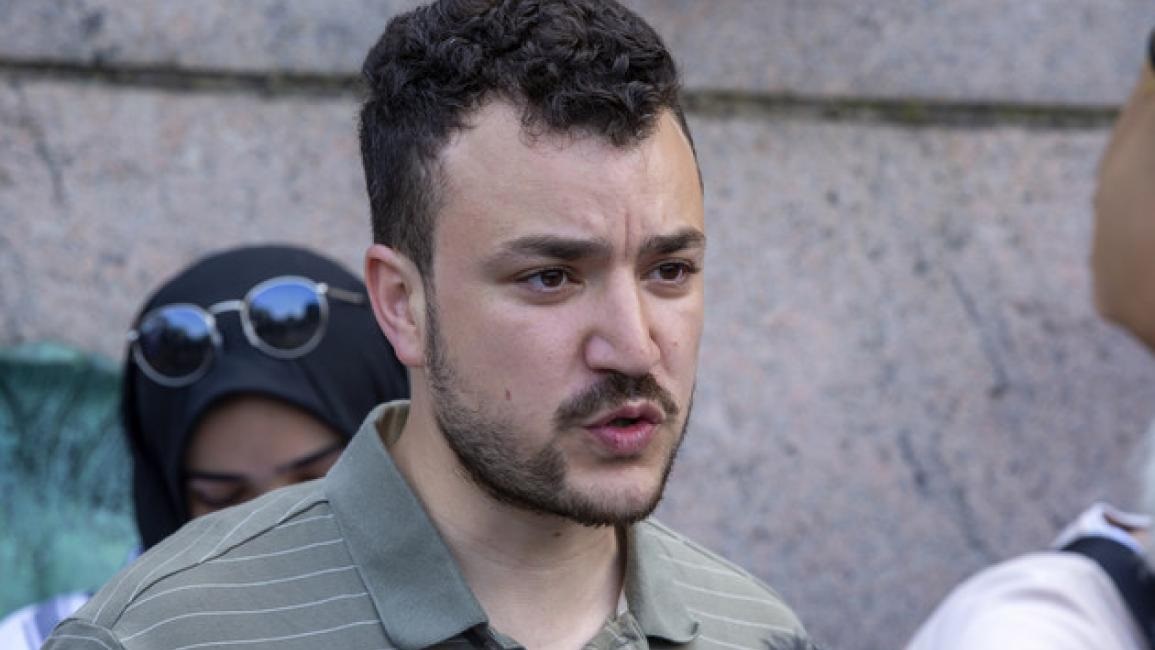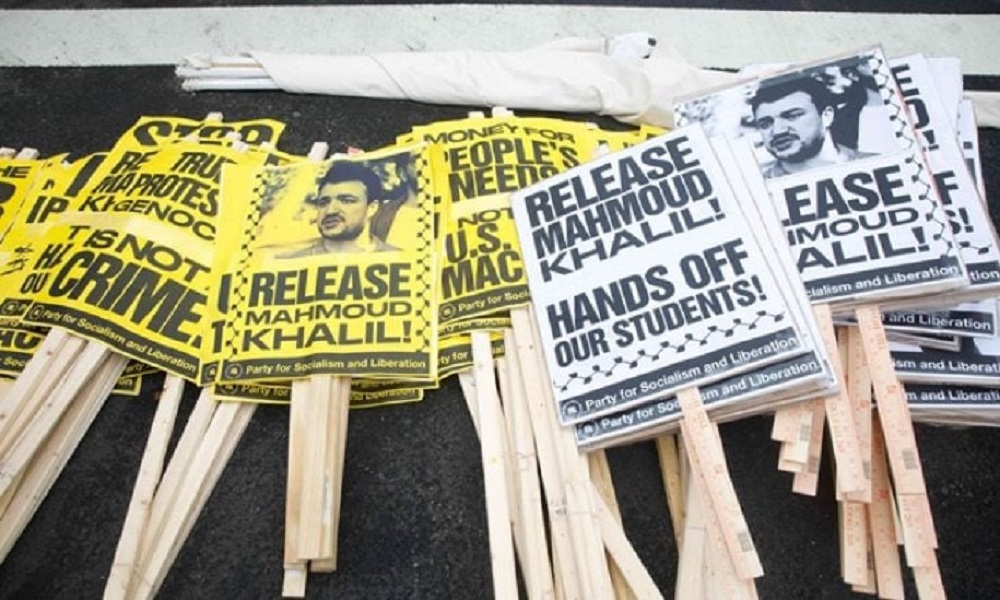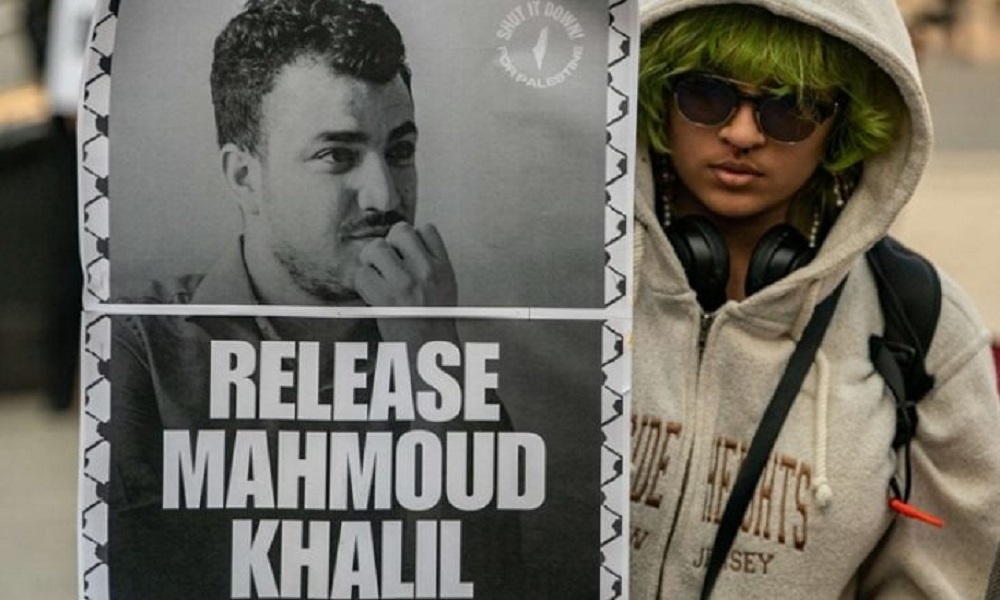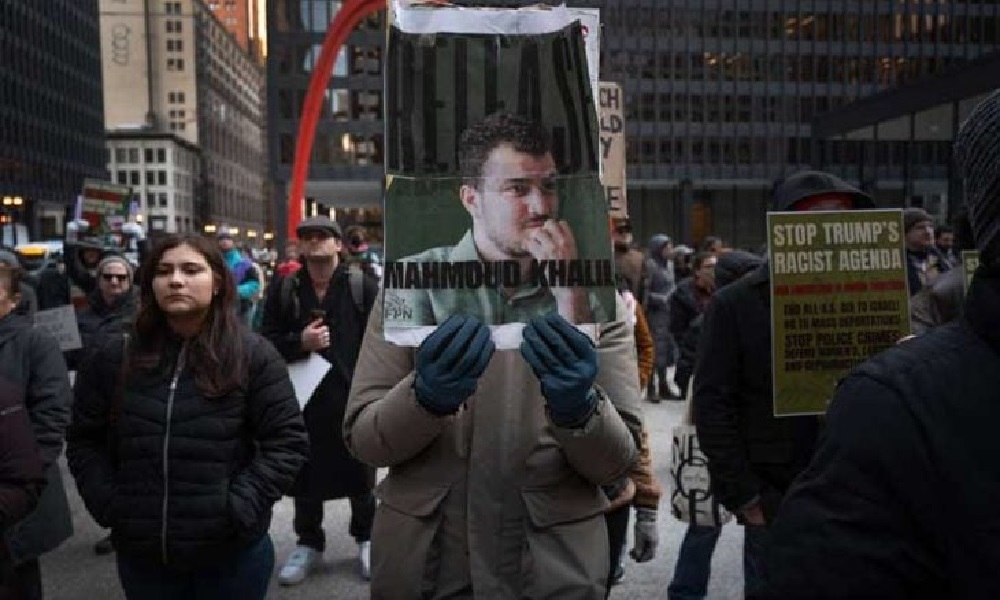Rubio’s Letter Drives Mahmoud Khalil Deportation Case Amid Lack of Evidence
Lawful U.S. resident Mahmoud Khalil faces deportation based on a memo and a letter from Senator Rubio, despite no charges or proof linking him to criminal or extremist activity.

Watan-A report by Sarene Habeshian stated that the two-page memo published by the U.S. Department of Homeland Security (DHS) before Friday’s hearing—which will determine whether Columbia University graduate student Mahmoud Khalil, a lawful U.S. resident, will be deported—contains no criminal charges against Khalil, who has not been accused of any crime.
When Immigration and Customs Enforcement (ICE) agents arrested him, they told Khalil that his student status had been revoked. Upon learning that he held a green card, they told him it was also invalid, according to Khalil’s lawyer.
The DHS memo relies solely on a letter by Senator Marco Rubio, who argued that the United States has the right to deport any non-citizen whose presence is deemed a national security threat.

Rubio Pushes Mahmoud Khalil Deportation Without Evidence of Threat
Rubio claimed that allowing Khalil to remain in the U.S. would undermine efforts to combat antisemitism globally and domestically, and jeopardize protections for Jewish students from harassment and violence in the U.S.
In his letter, Rubio argued that Khalil should be deported for his participation in “antisemitic protests and disruptive efforts.” The DHS memo echoed these claims and alleged that Khalil had not disclosed his previous work at the British Embassy in Beirut or his association with the UN agency for Palestinian refugees, UNRWA.
Several Trump administration officials had previously made similar accusations against Khalil without offering any supporting evidence. A White House official said DHS had been investigating Khalil before his arrest and concluded that he was a Hamas supporter—though they acknowledged he had not provided material support. Last month, White House Press Secretary Karoline Leavitt claimed Khalil had harassed Jewish American students and made them feel unwelcome on campus, and that he had distributed Hamas-supporting propaganda and posters with the group’s logo.
Khalil’s lawyers countered that the government presented no analysis or evidence showing their client was a security threat. At a Thursday press conference, attorney Mark Van Der Hout said, “Even if the government wants to violate the Constitution and deport anyone it wants, our position is: it cannot.” Khalil’s legal team plans to challenge the government’s evidence and demand Rubio’s testimony. Khalil remains detained at a facility in Louisiana, where his lawyers are calling for his release under the First Amendment.

Judge Questions Khalil Deportation as Case Rests on Rubio’s Letter Alone
A report by The Intercept, written by Jonah Valdez, argued that the Trump administration has failed to provide any evidence in its case against Khalil. The DHS file relies entirely on Rubio’s letter, which contains baseless antisemitism allegations. Although Rubio’s letter is undated, DHS submitted it to the LaSalle Immigration Court on Wednesday night—where Khalil has been held since his March 8 arrest.
Judge Jimmy Cummings gave the government until Tuesday to justify its deportation efforts. DHS appeared to depend mainly on Rubio’s letter. If the judge rules against the government, Khalil could be released on Friday. Cummings told Khalil’s lawyers, “If there’s no deportation, I don’t want him held any longer. I will order his release.”
Rubio’s letter offers no new evidence or allegations to justify Khalil’s removal, who holds permanent residency in the U.S. Instead, it cites the “foreign policy grounds” clause of the Immigration and Nationality Act—the same provision used by the government to detain Khalil in Louisiana. Trump administration attorneys referenced this clause in multiple legal filings, including Khalil’s habeas petition in New Jersey federal court, where his legal team is pressing for his release.
This rarely-used clause allows the Secretary of State to request the deportation of any non-citizen if there are “reasonable grounds to believe” their presence harms U.S. foreign policy interests. In previous public comments, Rubio labeled Khalil a “Hamas supporter”—a common, unfounded claim the Trump administration has made against student protesters opposing U.S. support for Israel’s alleged genocide in Gaza.

Rubio’s Claims on Mahmoud Khalil Face Legal Fire for Lack of Evidence
In a CBS News interview after Khalil’s arrest, Rubio declined to say whether the government had evidence linking Khalil to Hamas. Instead, he deflected by accusing Khalil of leading demonstrators in the “takeover” of Columbia University’s campus. In spring 2024, Khalil was a lead negotiator between the Palestinian solidarity encampment at Columbia and the university administration. The student movement demanded that Columbia disclose and divest from companies profiting from Israel’s war on Gaza.
Protesters briefly occupied Hamilton Hall—renamed “Hind Hall”—before NYPD officers stormed the building and violently arrested dozens of students. Khalil was not among those arrested. He was briefly suspended but reinstated the next day after university officials apologized.
Trump administration lawyers also accused Khalil of omitting some of his work experience when applying for his green card, claiming he failed to mention work at the British Embassy’s Syria Desk in Beirut and a brief unpaid internship with UNRWA in 2023. However, these allegations were not included in the government’s legal filing submitted to immigration court on Wednesday.
Khalil’s lawyers cited a provision in immigration law barring the use of “foreign policy” grounds for deportation based on speech unless compelling reasons are presented.
At a virtual press conference on Thursday, Khalil’s attorneys argued that Rubio’s letter fails to meet this standard.
Johnny Sinodis, a San Francisco-based immigration attorney and lead counsel on the case, stated: “Rubio’s memo is completely devoid of any factual explanation of why Mahmoud’s presence in the U.S. contradicts any urgent American government interest.”
He added: “There is absolutely nothing in the letter itself—and that is all the government has submitted to justify its ‘foreign policy’ claim.”
Bahir Azmy, who is leading Khalil’s federal court case in New Jersey, called Rubio’s letter “a boilerplate Soviet-style decree—hollow and terrifying at the same time.”






